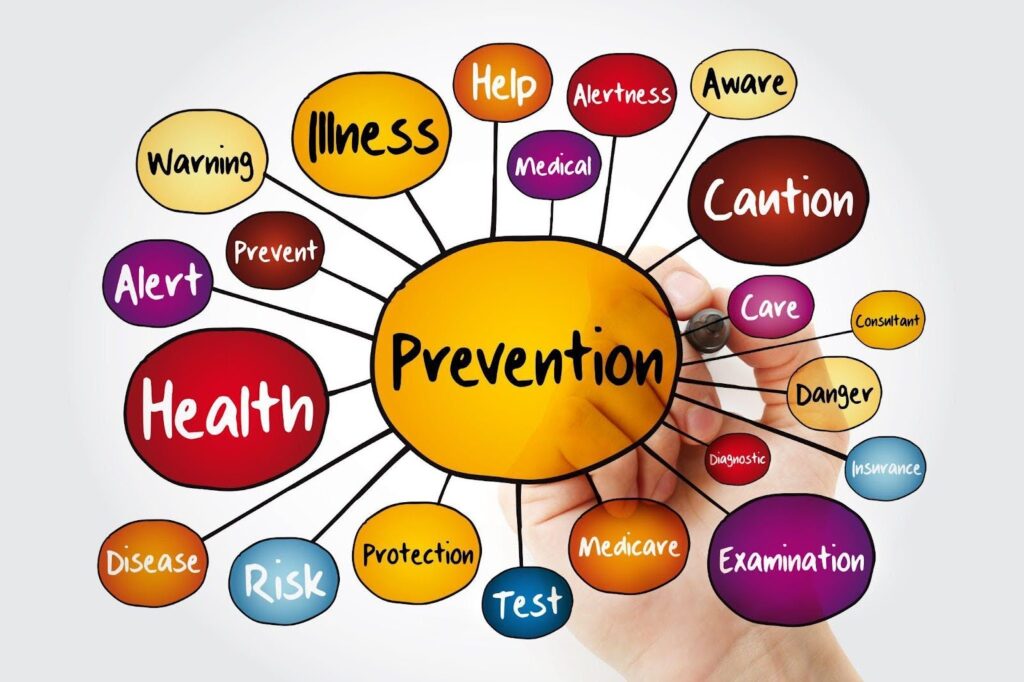Preventive care isn’t about treating illness but avoiding it altogether. By staying on top of screenings, vaccines, and wellness visits, you give yourself and your family the best chance at long-term health.
The good news?
Many of these services are fully covered by health insurance, meaning you won’t pay out of pocket when you use an in-network provider.
In this blog, we’ll explain preventive care, how insurance covers it, and which services are available for adults, women, children, and teens. If you’re ready to take a proactive approach to your health, this guide will help you get started with confidence.
How health insurance covers preventive services
Under the Affordable Care Act (ACA), most health insurance plans are required to cover a wide range of preventive services at no cost to you.
If you’re insured and use an in-network provider, you won’t pay a copay, coinsurance, or deductible for eligible preventive health care. This includes services like annual wellness exams, screenings, vaccinations, and counseling that are designed to catch issues early or prevent them altogether.
To qualify as “preventive,” the service usually needs to meet two criteria:
- It must be recommended by organizations like the U.S. Preventive Services Task Force, the CDC, or the Health Resources and Services Administration.
- It must be done when you’re not already showing symptoms or being treated for a known condition.
For example, a cholesterol test during your annual check-up is preventive and should be fully covered. But if you get the same test because you’ve been having chest pain, it may be considered diagnostic and could come with a bill.
It’s also important to note that coverage applies only when you visit an in-network provider. If you go out-of-network, you may have to pay out-of-pocket, even for a covered preventive service.
Keep in mind that not all health insurance plans are ACA-compliant. Short-term health plans, some grandfathered employer plans, and certain faith-based plans may not follow these coverage rules. That’s why it’s a good idea to check your plan details or call your insurer to confirm what’s included.
When used properly, preventive care benefits your health and wallet. These services are designed to reduce long-term healthcare costs by catching problems early and avoiding expensive emergency care later. So if your plan includes them, take full advantage — it’s care you’ve already paid for.

Preventive services for adults
Preventive care for adults includes a variety of screenings, immunizations, and health counseling services designed to catch problems early and support long-term wellness. Here are some of the most common preventive services recommended for adults:
1. Annual wellness visits
A yearly check-up with your primary care provider helps you track your overall health, identify risk factors, and set goals for nutrition, exercise, and stress management.
2. Blood pressure screening
High blood pressure often has no symptoms, but it can lead to serious issues like heart disease or stroke. Routine screening helps catch it early so it can be managed effectively.
3. Cholesterol screening
Cholesterol levels are a significant indicator of heart health. Screenings are typically recommended for adults starting in their 20s, especially if you have risk factors like obesity or diabetes.
4. Type 2 diabetes screening
Adults aged 35 to 70 who are overweight or obese should be screened for Type 2 diabetes. Early detection allows for lifestyle changes or treatment to help prevent complications.
5. Cancer screenings
These include colorectal cancer screenings starting at age 45 and lung cancer screening for adults aged 50-80.
6. Immunizations
- Flu shot (yearly)
- COVID-19 vaccine and boosters
- Tetanus, diphtheria, and pertussis (Tdap) every 10 years
- Shingles vaccine (age 50 and up)
- Pneumococcal vaccine (age 65 and up or earlier with risk factors)
7. Depression and mental health screening
Mental health is part of overall wellness. Many plans cover annual screenings for depression and anxiety, especially during primary care visits.
8. Alcohol misuse and tobacco use screening
Brief assessments during check-ups can lead to helpful counseling or resources if you’re looking to cut back or quit.
9. Sexually transmitted infection (STI) screenings
Adults at increased risk may receive screenings for HIV, syphilis, chlamydia, gonorrhea, and hepatitis B or C. These tests are usually done during routine exams based on risk factors.
These preventive services are tailored to your age, medical history, and risk level. Your family physician will help determine which ones you’re due for and how to schedule them, so you stay ahead of health concerns before they become serious.

Preventive services for women
Women’s preventive health care includes essential screenings, counseling, and health services that support wellness through every life stage. Whether you’re in your 20s or approaching menopause, staying up to date with these services is one of the best ways to protect your health and catch issues early.
1. Well-woman visits
These annual check-ups focus on reproductive health, mental well-being, and disease prevention. They typically include a physical and pelvic exam and a discussion about lifestyle habits, family planning, and any concerns you may have.
2. Cervical cancer screenings (Pap smear and HPV test)
Women aged 21 and older should get a Pap smear every three years. HPV testing is recommended for women over 30. These screenings check for abnormal cell changes that could lead to cervical cancer, often long before symptoms appear.
3. Breast cancer screenings (mammograms)
Beginning at age 40, women should get a mammogram every one to two years. Your doctor will help you determine how often, based on your family history and personal risk factors. Detecting breast cancer early on dramatically improves treatment success, and mammograms remain a key tool.
6. Breastfeeding support
Coverage often includes access to breastfeeding counseling and a breast pump. Depending on your plan, support may not be available until after delivery.
7. Osteoporosis screening
Bone density testing is recommended for women aged 65 or younger if you have certain risk factors. Early screening can help prevent fractures and long-term complications.
8. Gestational diabetes screening
This is typically offered between 24-28 weeks of pregnancy, but pregnant women may receive this test earlier if they have certain risk factors.
9. Preeclampsia prevention and screening
Blood pressure monitoring and low-dose aspirin may be recommended during pregnancy to reduce the risk of preeclampsia.
10. Domestic violence screening and counseling
Many well-woman visits include confidential screening for interpersonal violence and emotional abuse. Providers can offer counseling, referrals, and support resources.
These preventive services help women maintain control over their health and stay ahead of potential issues. Your family physician can help you understand which services are right for your age, lifestyle, and personal health history, and ensure you get the care and support you need at every stage of life.

Preventive services for children and teens
Preventive care for children and teens focuses on setting a strong foundation for lifelong health. These services are designed to track development, support physical and emotional well-being, and protect against preventable diseases.
Here are the key preventive services covered for children and adolescents:
1. Well-child visits
Scheduled regularly from infancy through adolescence, well-child visits include:
- Growth and developmental assessments
- Physical exams
- Vision and hearing checks
- Nutrition and safety counseling
- Time to discuss behavioral, emotional, and social development
These visits are also important for parents to ask questions and address concerns about sleep, school, mood, or behavior.
2. Vaccinations
Routine immunizations protect children from serious illnesses and are updated as they grow. Covered vaccines include:
- Hepatitis A and B
- DTaP (diphtheria, tetanus, and pertussis)
- MMR (measles, mumps, rubella)
- Polio
- Hib (Haemophilus influenzae type b)
- Varicella (chickenpox)
- Rotavirus
- Influenza (flu shot, yearly)
- COVID-19
- HPV (recommended starting at age 11 or 12)
- Meningococcal and Tdap (recommended in adolescence)
3. Developmental screenings
Preventive health care includes regular screenings to check for age-appropriate milestones in speech, motor skills, behavior, and cognitive development. Autism screening is typically recommended at 18 and 24 months.
4. Vision and hearing screenings
These are often performed during well-child visits or school physicals. They help detect early signs of vision or hearing issues that could affect learning and development.
5. Behavioral and mental health assessments
Pediatricians and family doctors monitor emotional and social development. Screenings for depression, anxiety, or other concerns are recommended for teens. This service includes guidance on managing stress, peer pressure, and mood changes.
6. Obesity and nutrition counseling
Providers track BMI and weight trends. Counseling supports healthy eating habits, physical activity, and a positive body image.
7. Oral health risk assessments
Dental health is reviewed starting in infancy. Fluoride varnish may be applied, and referrals to pediatric dentists are common.
8. Substance use and risk behavior counseling
Teens may receive counseling on avoiding tobacco, alcohol, and drug use. Discussions about peer pressure, sexual health, and safety are handled with sensitivity and confidentiality.
Preventive care during childhood and adolescence is about more than shots and check-ups — it’s about early support, education, and guidance.
Your family physician plays a key role in ensuring your child grows up healthy, confident, and ready for every stage of life. When care is consistent and proactive, small steps today can lead to a healthier tomorrow.

Stay up to date on your preventive care with Bonneville Family Practice
Taking care of your health shouldn’t be complicated, and at Bonneville Family Practice, we’re here to make it simple, supportive, and stress-free.
Our compassionate team is dedicated to providing thorough, insurance-covered preventive care for every stage of life. From annual check-ups and screenings to vaccinations and wellness counseling, we help you stay ahead of health concerns before they become serious.
If you’re unsure which services you’re due for or what your insurance covers, we’ll walk you through it. We believe you deserve high-quality care that is easy to access and understand.
Schedule your next preventive visit with Bonneville Family Practice today, and let us help you take confident steps toward a healthier future.